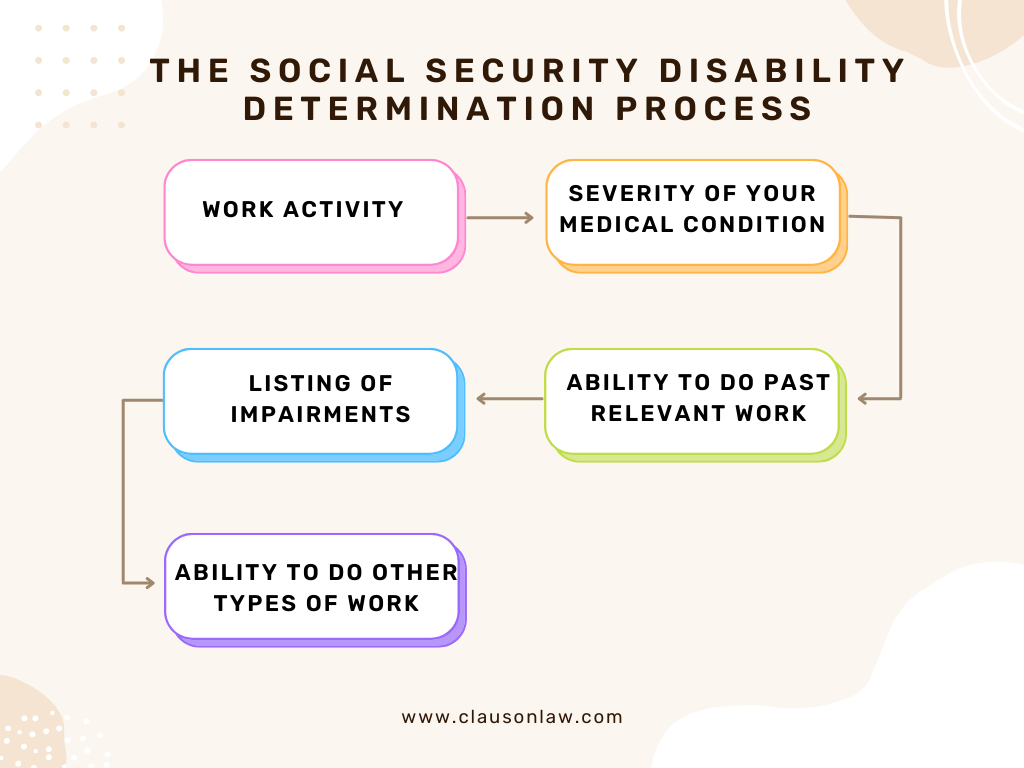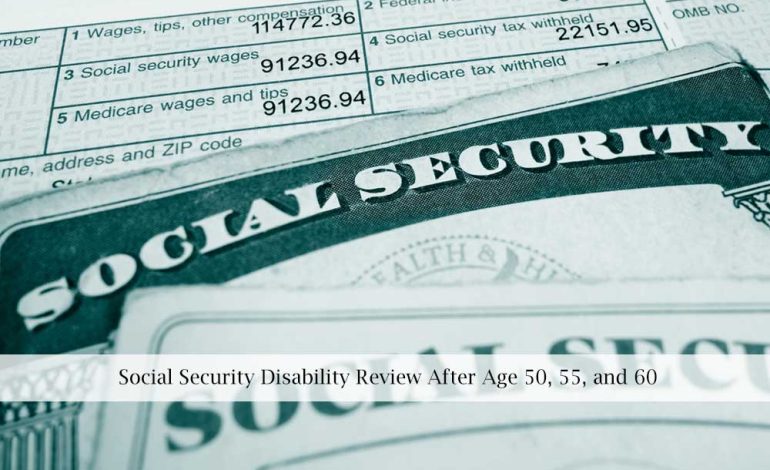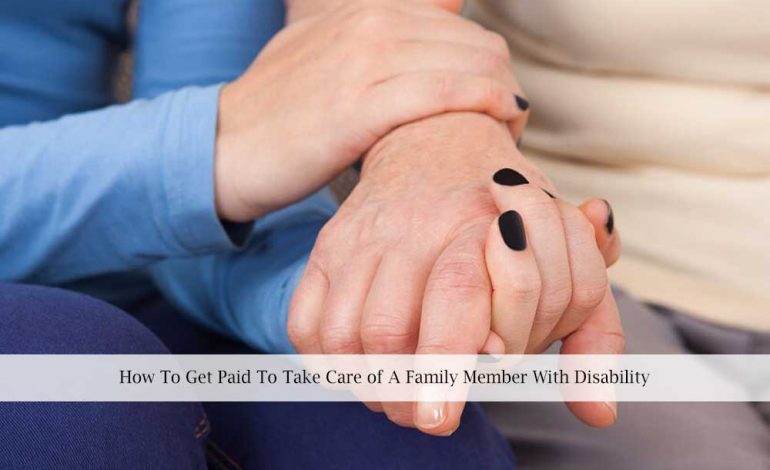Social Security Disability Rules After Age 50 and 60
If you are among those who think of Social Security as only for the elderly, consider the fact that one in four of 20-year-old workers suffer a disabling illness or injury before they reach retirement age. Until you or a member of your family becomes disabled, you may not realize the number of people who benefit from Social Security disability.
According to the most recently available statistics from the Social Security Administration, 9.1 million people receive disability benefits through the Social Security Disability Insurance program, and 7.8 million of their spouses receive family benefits. Meanwhile, more than 5.2 million people collect survivor benefits as a result of the death of a loved one who was eligible for Social Security benefits.
It’s obvious that Social Security is not only for the elderly, so continue reading as we explain the Social Security disability rules that apply after ages 50 and 60 to workers and members of their families. If you have questions about specific SSD rules and the effect, they may have on you and your family, contact a disability lawyer at the Clauson Law Firm, PLLC, for a free consultation.
Retirement Age and SSD Rules After Age 50
Back at the start of the Social Security retirement system, workers could dream of leaving their jobs behind when they reached age 65 and collecting retirement benefits. The truth is that 65 as the full retirement age for Social Security lasted for only a very short time. Annual increases in the retirement age began in 1938 it now stands at age 67 for any born in 1960 or later.
At 50 years old, you have a long way to go before reaching full retirement age, but you may have another option. If you have a medically determinable physical or mental health impairment that prevents you from working and is expected to last for at least a year, SSDI may be an option.
If your application for SSDI benefits is approved, the monthly payment that you receive is the same that you will get at full retirement age. The monthly benefit for both SSDI and retirement is based on your lifetime earnings with a maximum benefit of $3,345 per month.
SSD rules after age 50 may actually be an advantage for you as an older worker applying for SSDI benefits. The SSA uses an evaluation process to determine if an applicant for disability benefits is disabled within its definition of disabled. SSD rules after age 50 favor older applicants in the later steps of the process.
The Social Security Disability Determination Process
You must have a disability that meets the definition established under the Social Security Act to be approved for SSDI. It requires medical evidence proving that you have a medically determinable physical or mental impairment that prevents you from engaging in substantial gainful activity. The impairment must be expected to last for at least 12 months or result in death.

Social Security uses the following steps in a sequential determination process to review your application and decide whether your medical condition qualifies you for benefits:
- Step 1: Work Activity: Your monthly earnings from work are used to determine whether you have the ability to engage in substantial gainful activity. For 2022, if you have monthly earnings from work that exceed $2,260 with blindness as your disability and $1,350 for other medical conditions means that you are not disabled, and your application will be denied. However, if you earn less than the SGA amount, your application goes to the next step.
- Step 2: Severity of your medical condition: The physical or mental impairment must be expected to last for at least 12 months or result in death, and it must interfere with your ability to engage in basic work-related activities, such as walking, sitting, and standing. Only if your condition is severe enough will the application move to step 3.
- Step 3: Listing of Impairments: The SSA maintains a listing of impairments considered as being severe enough to qualify for SSDI. If you have a listed impairment or one that is equal to a listed one, your application for benefits will be approved. If it does not, then the examiner proceeds to the fourth step in the process.
- Step 4: Ability to do past relevant work: The SSA determines your residual functional capacity or RFC to determine your capacity to work fulltime. It evaluates your medical condition to determine limitations on your ability to work. The fourth step in the process uses your RFC to determine whether it allows you to engage in past relevant work. If it does, your application will be denied; otherwise, your application review moves to the final step in the process.
- Step 5: Ability to do other types of work: Here the SSA looks throughout the national economy for other types of work that you may be capable of doing given your medical condition, age, education and work experience. If you can make the adjustment, your application will be denied; otherwise, it will be approved.
If you are 50 and older, SSD rules after age 50 make it somewhat easier for you to be approved for SSDI when your application reaches step five in the evaluation process. The SSA recognizes the reluctance of employers to hire older workers to do a job at which they have no experience. It may not pay for a company to train a worker who may be eligible for early retirement benefits from Social Security at age 62. This advantage becomes even more likely for workers who are closer to either early or full retirement.
Regardless of any advantage SSD rules after age 50 may provide you in the application process, it can be denied. If that happens, consult an SSDI lawyer at the Clauson Law Firm to learn about your options to appeal the decision.
SSD Rules After Age 60
The same rules that give someone at age 50 or older a slight advantage at step five of the disability determination process SSDI also apply to you at age 60 or older. In fact, your ability to be hired for a job that you never worked at before in your life is even more unlikely as you are even closer to early or full retirement.
When you reach age 60, the temptation to apply for early retirement benefits at 62 becomes even greater than it was before. If you have a medical condition, talk to an SSDI lawyer to learn whether to file an application for disability benefits instead.
Applying for retirement benefits at 62 results in a monthly payment that will be 25% to 30% less than what you would receive by waiting for full retirement age. The reduction is permanent and continues after you reach full retirement age, so there is an advantage to applying for SSDI rather than early retirement.
If approved for SSDI benefits, you avoid the reduced benefits that come with early retirement. When you reach full retirement age, your SSDI benefits automatically convert to retirement benefits.
Survivor Benefits and SSD Rules After Age 60
Family members of a deceased worker who was eligible for Social Security benefits either through retirement or SSDI may receive monthly survivor benefits. SSD rules after age 60 apply to widows and widowers regarding survivor benefits.
A surviving spouse must be at least 60 years of age or older to qualify for survivor benefits. However, SSD rules after age 50 permit a surviving spouse who is 50 or older to qualify for survivor benefits provided, they are disabled. The disability must have started at least seven years before their spouse died.
Divorced spouses of a deceased worker may also be eligible for survivor benefits. The parties must have been married for at least 10 years before the worker’s death. The divorced spouse must be at least 60 years old when filing a claim for benefits or be at least 50 years old if disabled, and not remarried to qualify for benefits.
Parents of a deceased eligible worker who are at least 62 years of age and were dependent of their deceased child for support may be eligible for survivor benefits. The deceased child must have provided at least half of the parent’s support.
How A Disability Lawyer Uses SSD Rules To Your Advantage
An SSDI lawyer at the Clauson Law Firm has the knowledge and experience to use Social Security disability rules to your advantage. We carefully review your claim for SSDI benefits to ensure that it is supported by the medical records and other evidence needed to meet the eligibility requirements for approval. If you filed an application for benefits that were denied, let one of our disability lawyers review it, and give you options for appealing the denial.
Find out more about SSD rules after age 50 and 60 during a free consultation and claim evaluation with one of our outstanding SSDI lawyers. We also offer advice and representation for all matters related to SSDI and Supplemental Security Income benefits.



1 Comment
I was refused a ss card when I was a kid they said that because the state had ruled that I had limited learning disability they the black lady told my mom they didn’t have to give me a card, my mom began crying and begging how was I supposed to live or work, the black lady laughed and said ok will give me a card if she agrees that I can do physical labor, then laughed at me and told me to always pay my taxes so that when I get older and get hurt on a construction job , cause I would be working construction the rest of my life, 1974, I could never get a job or keep one, but construction and would lose it cause of my learning abilities, I got hurt in 97, fought for ten years with a family and finally got SSI, then they cut me off cause I inherited $30,000, , I m divorced over the living hell it caused, I tried to re apply but they said I would have to go through it all again and get re approval, I was diagnosed with physco effective disorder in 2007-9 when I was approved, had stroke also due to degenerative disc pinched nerve, I had to go back to construction work again, now, I m not working cause of my mental conditions and just can’t deal with the pain and mental issues from everything, should I be eligible for disability cause of my mental disability without having to go through hell again, I have no type of medical help, insurance etc, I never liked being told because I m white is the repeted reason I denied food medical etc, can you advise me, no attorney would ever represent me cause of my health physical appearance.